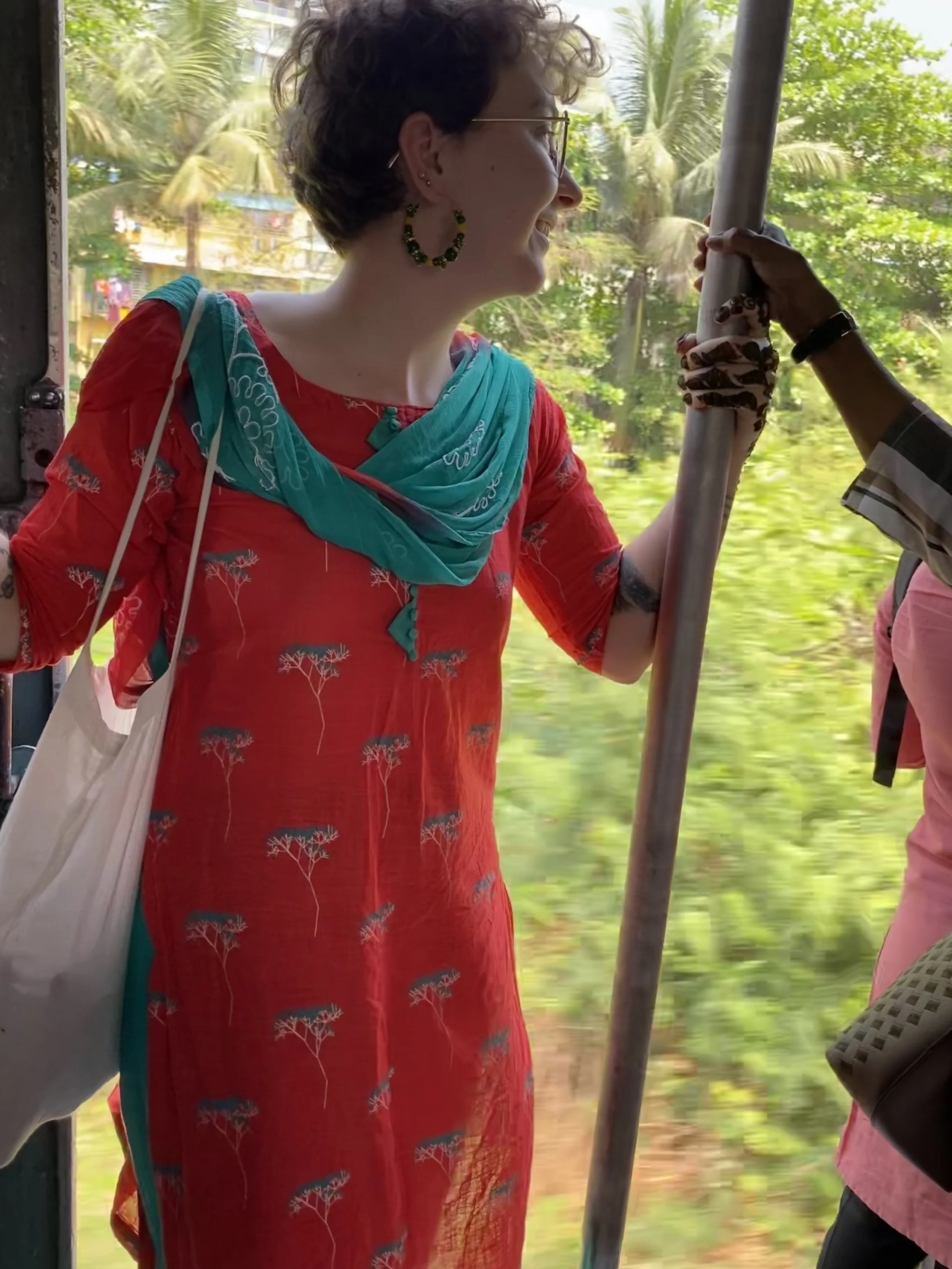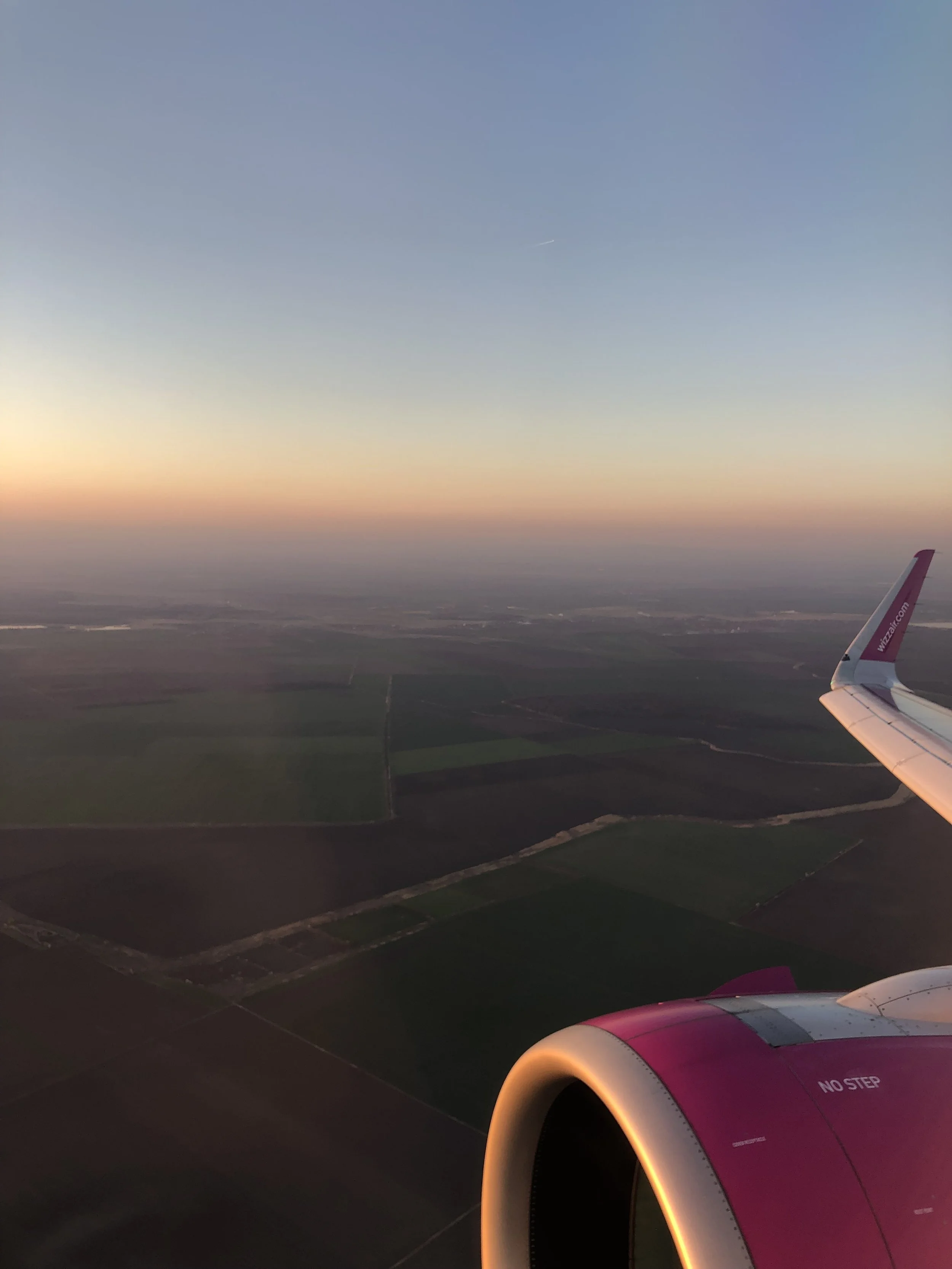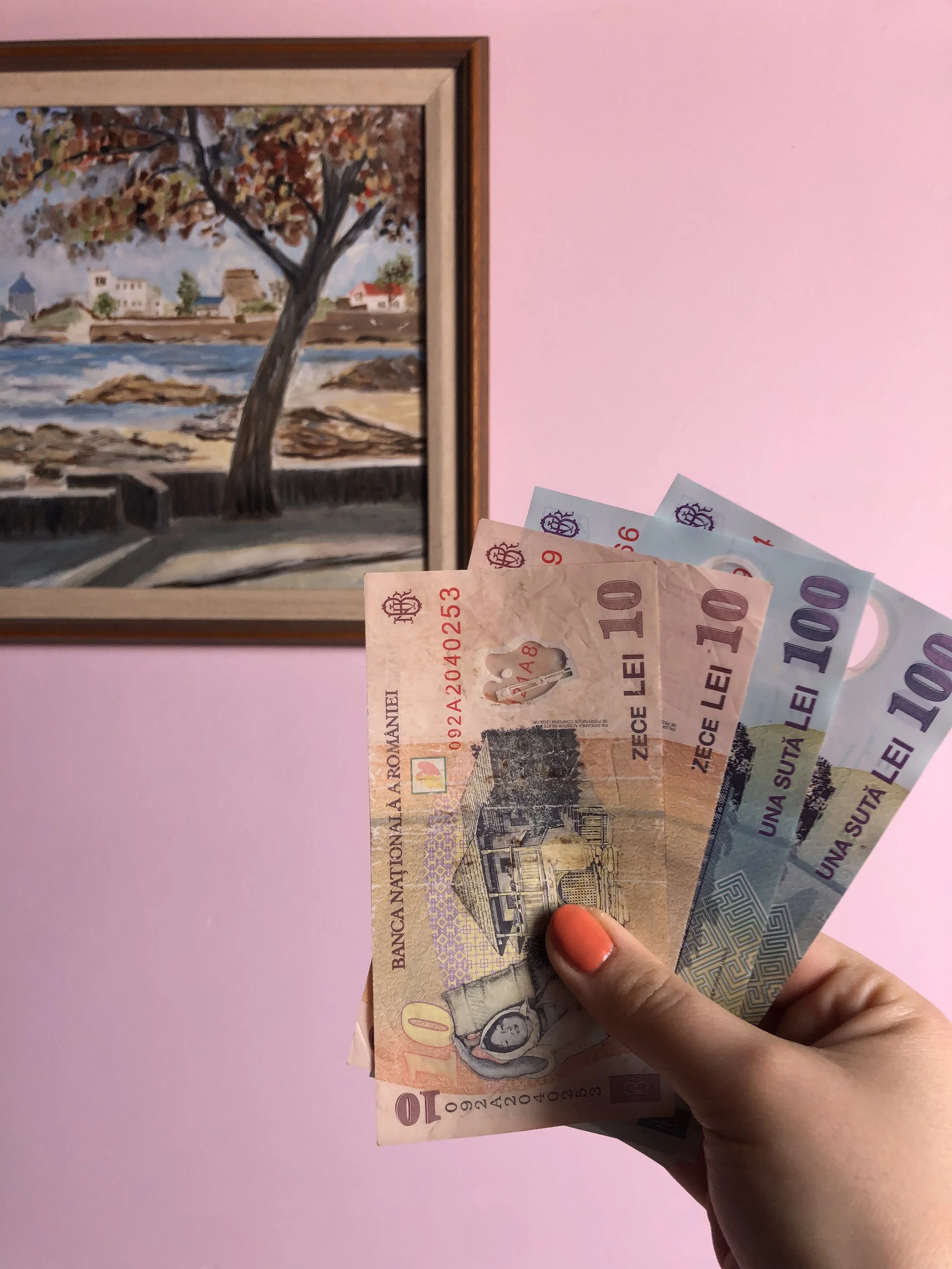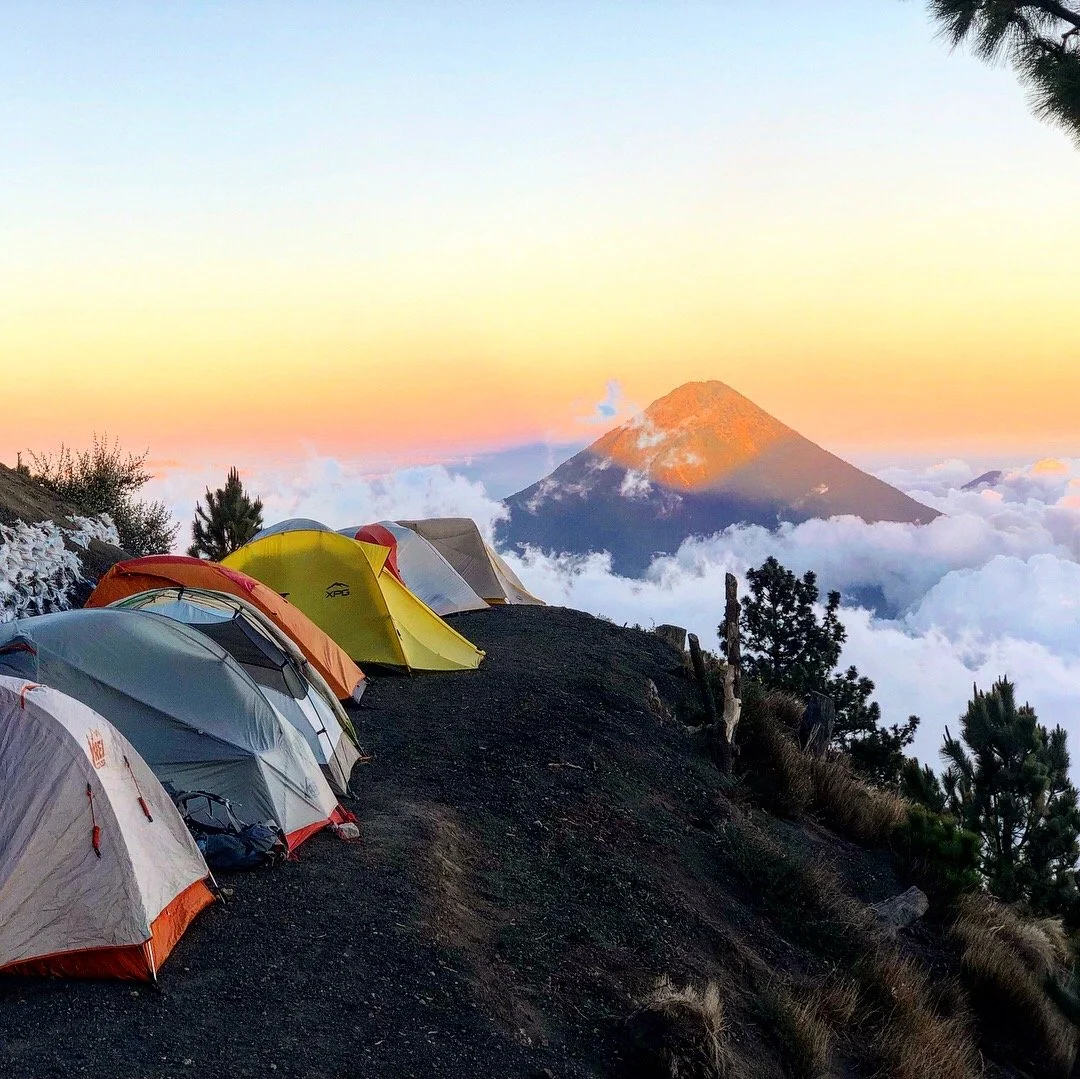The Ultimate Guide to Planning Your First Overseas Journey
It's time; Covid has ended, and the world is waiting. You have spent the past months, maybe even years, watching the Instagram reels and TikToks of all the travel bugs and adventure seekers. They post exotic and captivating photos of all their adventures.
Now you've told yourself it's time. I will seek my own adventure, but then the daunting task of planning and putting together a trip brings you to a halt. Don't worry, I promise planning your first trip abroad does not have to be overwhelming or scary.
I've put together a guide that will ease you into international travel. Before you know it, you too will be ready to take on your first adventure!
Step 1 - Dream Big, but also consider your budget.
It's time to dream; imagine the ultimate destination, that dream vacation. Ask yourself what you have always wanted to see or do. What makes your heartbeat a little faster? Then dream some more, it can't hurt, right? Just get it all out there; if it helps, write it out on a notepad or on your device.
Now that you have put all of your creative thoughts in the space, look at what you desire. Then consider your budget. Yes, I know this can put a damper on things if the budget isn't as much as you would like, but there's always time to save. But seriously, it's super important to have a plan of how much you want and can spend on this adventure. What is realistic and manageable? Once you have this number in your head, it's time to move on to a more exciting step.
Step 2 - Choose a Destination.
The dreams are with you, and a bit of reality is sprinkled in with a budget set. Now it's time to choose the ultimate destination. To help narrow things down, here are some questions to ask yourself.
What time of year do I plan to go? This can be important for travel destinations that get intense weather, specifically places with monsoon seasons or incredibly high temperatures.
What kind of activities do I want to do?
How far is the destination, and will the costs of the flight fit into my budget?
Are there safety concerns for my destination?
Examples include political unrest, recent natural disasters, high crime rates, or is Covid still an issue? You can find the most up-to-date safety recommendations here.
This question is not meant to scare you or put a bad name on any country, but if you are an unseasoned or inexperienced traveler, then taking on destinations that are not so tourist-friendly can put lots of stress on you throughout the trip.
When is peak season? This can be something to avoid, or you may want to plan your trip during this time. It all depends on things like weather, activities, and your budget. Often traveling outside of peak season can be much cheaper, as hotels and activities will most likely be discounted. To check the peak season of any destination, simply Google, "What are the peak seasons of [destination]?"
What is the language, and will I be able to communicate? Generally, most if not all countries that are touristy have a plethora of English speakers. Of course, if you go off the beaten path a little, you may encounter some problems.
However, in the thirty countries I have visited, I have always been able to get around with only English. It's also nice to find which language is spoken and learn a few phrases, such as "Hello," "How are you?" "How do I get here?" "How much is this?" "Where is the ATM?" The most important one in my opinion. Where is a place with WI-FI? Even if you only speak a small bit often, locals appreciate it and are more likely to help you out.
Step 3 - Research, Research, Research…
Now that you have found your dream destination, it's time to do the research. You may have already started this with looking into the weather, peak seasons, and safety. Still, there is a lot to learn.
Look into things like the laws and regulations for tourists in the country. Most often, if you Google the country and then "tourists," the government website will come up with a list of things you need to know about the country you plan to visit.
Included in this are also the known safety concerns and scams you may encounter. Often, tourists are easy targets for scams. Some examples I have encountered are vendors placing a bracelet on your hand saying it's a gift but then demanding payment. The taxi may overcharge you or change the price if it's not set before you get into the car. There are also the possibilities of being sold fake tickets to attractions.
More known ones such as pickpocketing. To avoid these, it's important to be aware of your surroundings, and if you are unsure of something, a go-to is to ask your hotel or hostel reception. They will always have accurate and reliable information.
What about the culture and customs of your destination? Many countries have festivals throughout the year. Do you want to participate in these, or would you rather steer clear of the activity?
What about holy places? Many destinations have beautiful mosques and temples that are open for tourists to visit. In many cases, in order to enter these places, you must dress modestly. This can mean covering the knees and shoulders. In some cases, women are expected to cover their heads.
When considering the culture, it can seem annoying to look into these things. Still, I find that it's important to take the time to understand what is considered disrespectful or rude. As you are a visitor in their country, and just as you would be respectful and polite in a friend's home, it's also important to show the same respect in a foreign country.
Step 4 - Purchase the Tickets!
It is time to take the plunge. You have planned a budget, chosen a destination, and did a little research. Now you must book the ticket. This can feel like a daunting task, considering your budget, the city to fly into, and the exact dates you would like to fly out.
The time you purchase your ticket until the departure date does matter. To get the best deal and prices, here are some guidelines for how far in advance to purchase your ticket. This guide is for those who are booking from the United States. Otherwise, it may change if you're booking in another country.
Reference Times:
Central America - 2-3 months before departure
South America - 2-3 months before departure
Europe - 3-4 months before departure
Asia - 4-5 months before departure
Africa - 5-6 months before departure
Middle East - 5-6 months before departure
South Pacific - 5-6 months before departure
Now that we have the time frame in which to book, where do you look for a ticket? My top two websites for booking a ticket online are Skyscanner and Google Flights. Both bring up the cheapest options across all airlines.
If you are more flexible with dates and want a good price, Skyscanner gives the option to look at the cheapest month for your destination. Or you can click the option for the whole month to find the best dates for the month you plan to depart in.
Some other practical tips: Always search in a private browsing mode or use a VPN. Airlines will often increase prices if they see an increase in searches for a destination. Another tip that often works is to book on a Tuesday. This is the day flights put out new deals and often you can grab a flight for a bit cheaper.
Finally, if possible, always book directly through the airline. Many of the third party companies that sell tickets at a discounted rate are incredibly difficult to deal with. If you miss your flight, need to change it, or need a refund it's often impossible. Many do not have good customer service nor very good refund policies. So save yourself the hassle from the start and book with the airline.
Step 5 - Book that Perfect Lodging.
It's time to find a place to stay. By now, you have done enough research to know exactly what it is you would like to see and do. Planning during the season, lodging options can go quickly, so book these after your flight.
Now, the question is: where do you want to stay? A hotel, Airbnb, or hostel? There are a plethora of options out there for accommodations. Of course, choosing the one you are most comfortable with is always best.
Besides Airbnb.com for houses and flats, I also use booking.com for hotel rooms and hostels. Another great option is Hostelworld.com. This website lists all the hostels in the area along with trustworthy reviews. You can also find hotels on this website as well.
If you're a budget traveler but don’t want to stay in a shared hostel, look into hostels with private rooms. You get the luxury of a private stay similar to a hotel but with a discount!
Step 6 - Choose the Fun.
I know that all of this can be overwhelming and maybe a bit boring to most. However, it's now time for you to book the fun. You have done research, and by now, you should know what your destination has to offer!
So what will it be? Hang gliding over the mountains, bungee jumping, surfing lessons? Or maybe you're not an adrenaline junkie and would prefer cooking classes, museums, or day trips.
Websites I have used for booking activities and tours are Viator and Airbnb Experiences. These are both trustworthy websites that sell legit services. Viator also offers booking for things like transport to and from the airport and has many honest reviews for various experiences.
The Airbnb Experiences I have found many locals who offer tours. Taking you off the beaten path to the local hangouts. This applies to things like food tours and pub crawls. Another option that I have not used but has been recommended to me is GetYourGuide.This site sells mainly tours and experiences and is worth looking into as well.
One last tip for booking activities is to wait until you arrive at your destination. For the planner, this may not be a good option, or if you plan to travel in peak season to a very popular destination, I would also suggest getting things in advance. However, for the off-season traveler, booking on arrival can have benefits. Often you can haggle with the salesman and get a better price, or the tickets are sold for less if you do a same-day tour or activity.
Step 7 - Plan the Little Details.
I know, I know, there is a lot to planning your first international trip, but we are almost at the finish line. What's left is what I like to call the little details: the list of necessities in order to have a stress-free trip.
First, a passport. Do you have one already? If you need to apply, this can be done at any local post office. If it's your first time, they will gladly take you through the process. If you already have a passport, make sure you know when its expiration date is. Most countries require that your passport has at least six months left in order to enter the country.
Next, visa requirements. It's important to check the government website of your destination to see the entry requirements. I use Passport Index; this website allows you to see visa requirements for your passport.
Vaccinations: if you're going for a short time, usually vaccinations are not required. However, it's always good to double-check the CDC webpage to see vaccination and other health recommendations for your destination.
COVID-19: this is a scary word for travelers. While most countries no longer have travel restrictions or entry requirements pertaining to COVID-19, it's still important to double-check before leaving.
Travel Insurance: I will say this once and then a thousand times: DO NOT TRAVEL WITHOUT INSURANCE!!! Traveling is fun, but a trip can quickly turn into a nightmare if you are injured or a flight is canceled, a bag is lost, or something is stolen. Travel insurance will cover you for most of these things, if not all, if you get the right plan. Plus, it's just better to be safe than sorry. Below is a list of travel insurance I have used in the past that I found to have affordable plans:
SafetyWing
Alliance Insurance
Good Neighbor Insurance
World Nomads - I have not used them but have heard great reviews, especially for their coverage of extreme sports and long-term travel deals. Unfortunately, they only cover U.S. residents.
Notify your bank of travel plans. This can be done by calling your bank and letting them know your planned travel dates. Some banks also have the option to notify them through their banking app. If the bank does not know you are traveling, they will most likely freeze your card because of suspicious activity.
Currency: most countries have ATMs that are safe and pretty reliable. However, to ensure you don’t become stranded because of a lack of cash, check the area you are going to. If ATMs are not reliable, you can exchange money in advance at your bank or just take it with you and exchange it in a local bank upon arrival.
Another tip for currency: when you arrive at the airport, there will be many options to exchange money or use the ATM. If you need to get out a basic amount, do it, but don’t withdraw everything you plan to use. Often, airports have higher exchange rates and fees, and it's better to wait until you are out and in the city.
Transportation: arriving in a new country can be overwhelming and sometimes scary. To ease this, look into transport options before you arrive. See how far your lodging is from the airport. Most hotels will offer a shuttle to and from the airport. You can also take a taxi or public transportation. Regardless of what you choose, having a plan will make the whole ordeal smoother.
Travel adapter: this one's important! The last thing you will want to deal with is a dead phone and no way to charge it. Before you leave, check the type of socket the country requires. Then, order the adapter; you can usually get them on Amazon for an affordable price.
Step 8 - The To-Do's Before Leaving
Congratulations, you made it to the end! You can pat yourself on the back and feel confident about your future trip. Before you head out, I would recommend making a list of things to do beforehand. For example, what are your must-haves for packing? Will you need to take medication with you? If you have a pet or plants, will someone be able to care for them? These are small things, but they can also be a pain to deal with if left unchecked.
One last warning to you, a future traveler: once you get a taste of international travel, you won’t want to go back! It's a privilege to travel, and I hope you will feel proud of yourself for taking the plunge!
~A Fellow Wanderer












